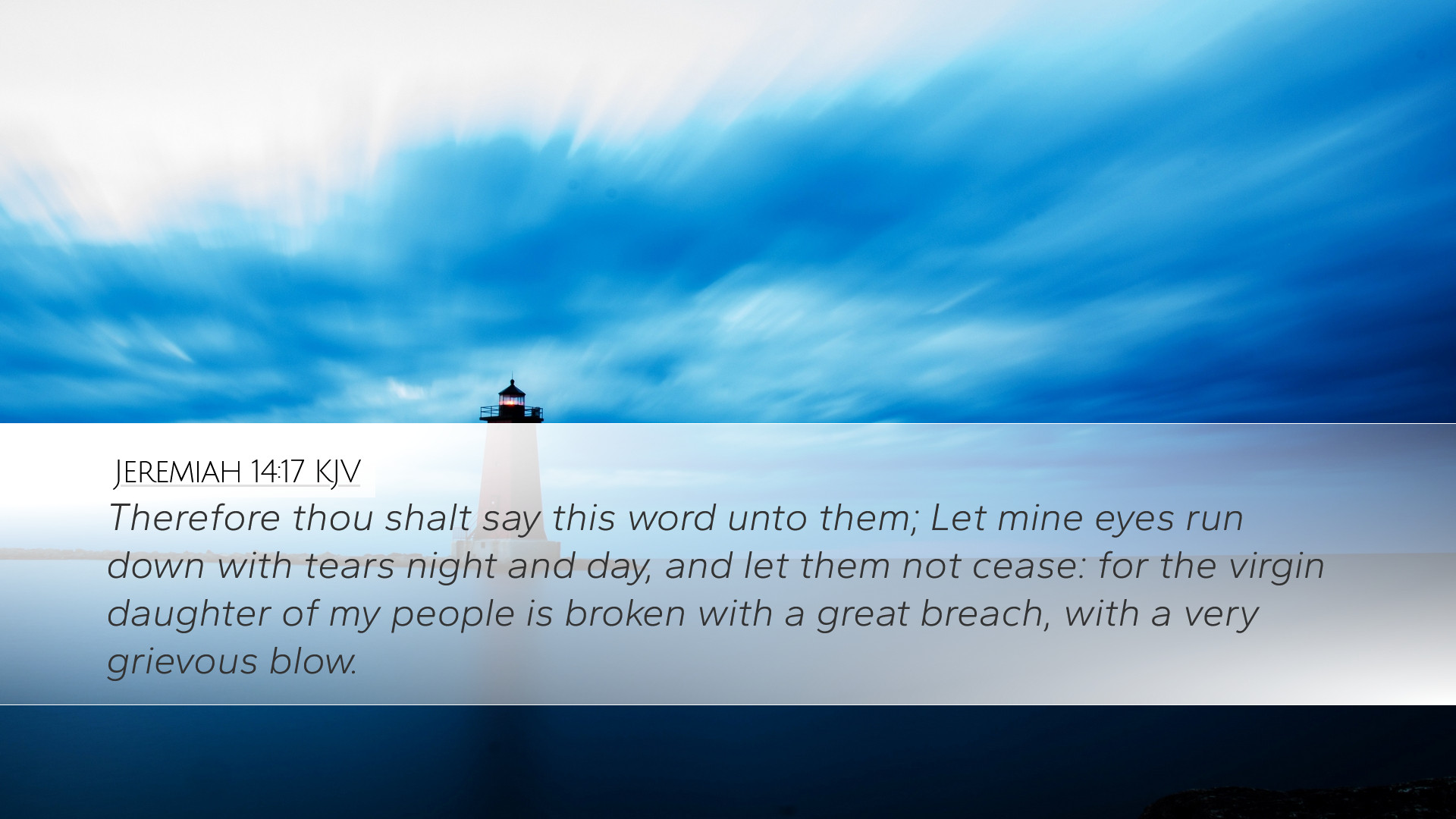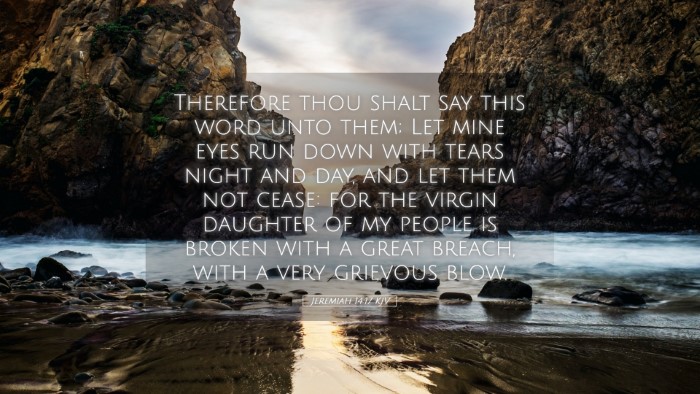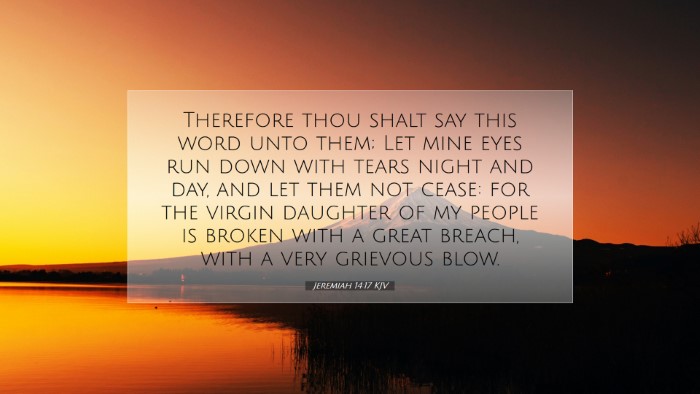Commentary on Jeremiah 14:17
In the book of Jeremiah, the prophet speaks to a people in deep distress, and in Jeremiah 14:17, he expresses the profound sorrow and the urgent plight of Judah. This passage offers a poignant reflection on the spiritual and physical conditions faced by Israel, serving as a reminder of the consequences of turning away from God.
Text of Jeremiah 14:17
"Let my eyes run down with tears night and day, and let them not cease: for the virgin daughter of my people is broken, with a great breach, with a very grievous blow."
Contextual Insights
This verse is part of a chapter that articulates the dire situation prevailing during a time of drought and impending judgment. Jeremiah, often called the "weeping prophet," portrays his sorrow as he intercedes for a nation that has strayed from God.
Insights from Public Domain Commentaries
Matthew Henry's Commentary
Perspective of Grief: Matthew Henry emphasizes the utter sadness Jeremiah feels as he envisions the plight of the 'virgin daughter'—a term reflecting both purity and vulnerability. He points out that the tears symbolize both personal anguish and collective lamentation over the sins and resulting calamity of God's people.
Intercessory Role: Henry interprets the weeping prophet’s tears as an intercessory cry. Jeremiah's tears echo the heart of God for His people, calling on the faithful to recognize the severity of their sin and the gravity of their situation. The continual imagery of crying signifies the depth of despair that should lead the people to repentance.
Albert Barnes' Notes on the Bible
Impending Destruction: Albert Barnes offers a view of the “great breach” referenced in the verse, interpreting it as a metaphor for the significant spiritual and societal ruptures among the people of Judah. He connects this breach to the greater theme of judgment that runs through Jeremiah’s prophecies.
Grievous Blow: The "very grievous blow" can be seen as multifaceted, representative not only of physical calamity but also of the spiritual devastation resulting from the people's disobedience. Barnes argues that the prophet's expression serves as a warning—a call to recognize their sin before it is too late.
Adam Clarke's Commentary
Symbolism of Tears: Adam Clarke notes the symbolic significance of tears as a sign of profound sorrow but also of potential hope for healing and restoration. He draws on the tradition of lamenting found throughout scripture, pointing out that tears can be a form of petition to God for mercy.
Call to Awareness: Clarke emphasizes the urgent need for the people of Judah to be made aware of their spiritual condition. The verse serves not just to express grief but also acts as a catalyst for reflection and potential repentance. Clarke brings to light that such awareness is essential for any meaningful restoration process.
Theological Implications
This passage serves as a reminder of the necessity for tears of genuine repentance in the life of faith. As the church reflects on these words, there are several theological implications to consider:
- Repentance: The call to repentance is clear and necessary. Just as Jeremiah weeps, so too should the church grieve for the sins of our communities and seek renewal.
- Intercession: The role of intercession emerges prominently in this verse. The faithful are reminded of their role in prayer, standing in the gap for those who are lost.
- Divine Mercy: The emotional appeal found in Jeremiah’s tears illustrates God’s deep compassion. It reminds us that despite judgment, God’s desire is always for reconciliation.
- Community Impact: Jeremiah's lament is not solely personal; it represents the collective sorrow and need for restoration that exists within the community of faith.
Conclusion
Jeremiah 14:17 encapsulates a moment of deep emotional lament that has rich implications for understanding the character of God and the seriousness of sin. As pastors, theologians, and scholars, it is vital to draw from this passage lessons of intercession, repentance, and the overarching hope for restoration through divine grace.


